Completed Projects and Outcomes
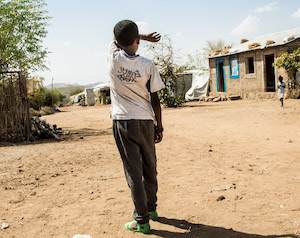
Humanitarian Corridor Initiative
Thousands of refugees and migrants risk their lives each year crossing the Mediterranean Sea to reach Europe. A “humanitarian corridor” initiative, started following an agreement signed by the Italian government and several religious and non-governmental organizations, is providing a small number of refugees with safe travel and visas to Italy, along with housing and resettlement assistance upon arrival. (more...)
Partners: Caritas Italy, Community of Sant’Egidio, ICMC Europe, Universidad Sede Sapientiae (Peru)
Researchers: Kellogg Faculty Fellow Clemens Sedmak, and Kellogg Faculty lIaria Schnyder von Wartensee
Period: 2018-2022
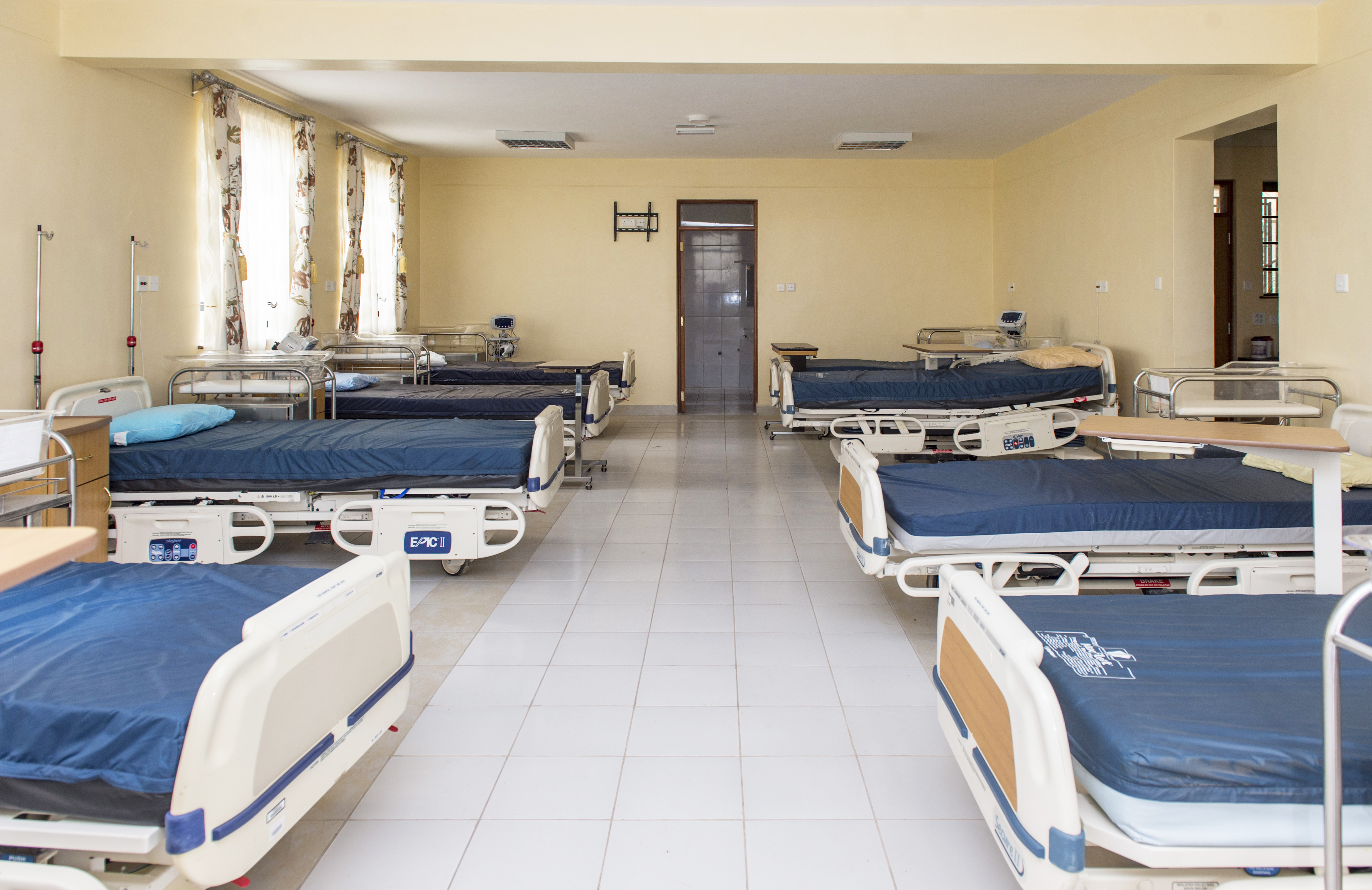
Maternity Spaces and Integral Human Development
The research focuses on maternity environment and its impact on users' health. Healthy setting is known to influence childbirth and health outcomes for women and children. The birth environment supports the achievement of positive outcomes by influencing the experiences and perceptions of users. (more...)
Partners: Brother Andre Medical Center (Nairobi, Kenya) and University of Florence (Italy)
Researchers: Kellogg Faculty Fellows Vania Smith-Oka and John Onyango, with Paul Perrin, Nicoletta Setola, and Laura Iannuzzi
Period: 2019-2020
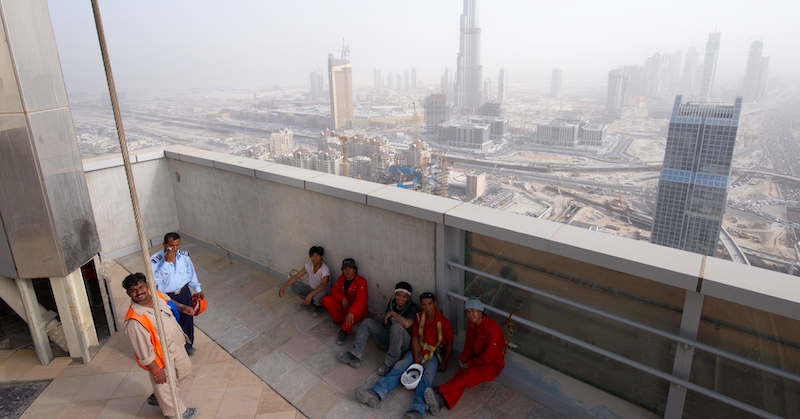
The Role of Labor Intermediaries in Migrant Welfare
The goal of this research project is to study how regulatory policy can improve the welfare of Sri Lankan labor migrants in the Middle East. In particular, we focus on the role of recruitment agencies that match Sri Lankan workers to construction and domestic work jobs and play a key role in determining the working conditions and choices available to these migrants. (more...)
Partners: Verité Research, Ministry of Foreign Employment of Sri Lanka, and the Sri Lanka Bureau for Foreign Employment
Researchers: Kellogg Faculty Fellow Nilesh Fernando
Period: 2019-2020

Measuring Person-Centered Maternity Care and Developmental Outcomes in Children in a Peri-urban Setting (Kenya)
Disrespectful and abusive care of women during hospital stays for labor and delivery is a significant problem in sub-Saharan Africa. Some scholars have argued that dignified care in this key developmental transition may have lasting positive effects on women and children. This study examines these hypotheses by proposing an examination of person-centered maternity care. (more...)
Partner: UBrother Andre Medical Center (Kenya), Holy Cross Parish (Kenya), University of California San Francisco
Researchers: Laura Miller-Graff, Terence Johnson, Danice Brown Guzmán and Jackline Oluoch-Aridi
Period: 2018-19
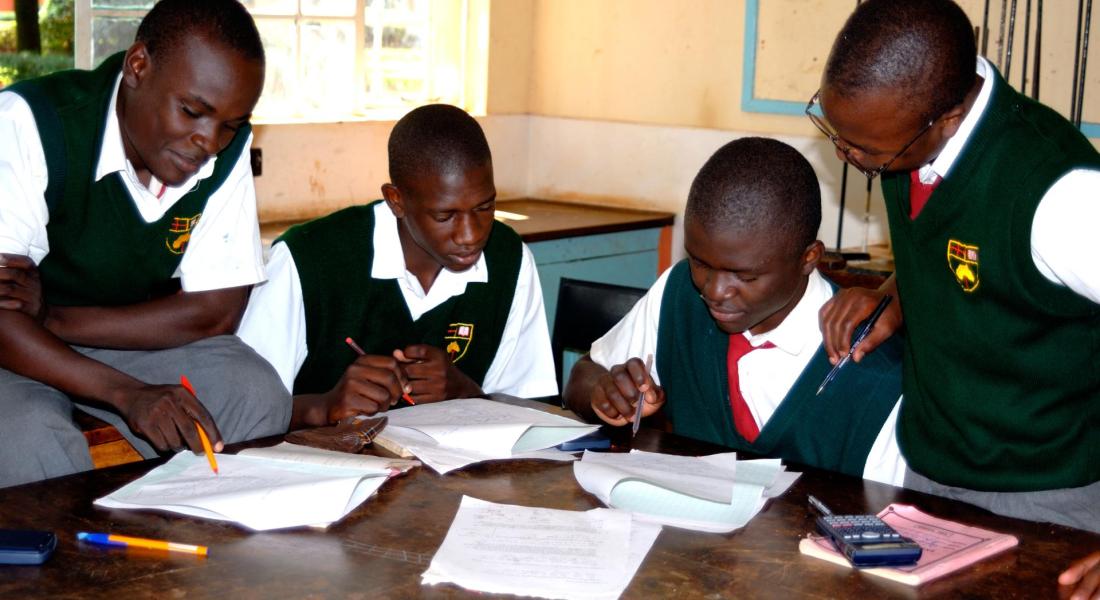
Education & Citizenship in Kenya
Education is thought to contribute to citizenship formation by inculcating a sense of nationalism, but also by spurring citizen engagement through the diffusion of political knowledge, the contribution to internal efficacy, and the encouragement of political participation. In an ideal world, education can build trust towards fellow citizens. However, schools vary in their capacity and commitment to shape these various dimensions of citizenship. The type of school (government, religious, or for-profit) could shape the values espoused through the curriculum as well as students’ and their families’ perceptions of the government. Relatedly, the level of diversity within the student body could also affect students’ citizenship formation, by affecting students’ tolerance and trust in positive or negative ways.
This study will examine how secondary schooling experiences shape three dimensions of citizenship in Kenya - political knowledge, political engagement, and trust towards other citizens. Since its transition to multi-party rule in 1992, most elections have been plagued by violence, population displacement, and heightened ethnic tension. However, Kenya holds many exciting opportunities for youth – it is considered the primary economic and innovation leader in East Africa and boasts a vibrant civil society.
Researchers: Rev. Robert Dowd, csc and Jaimie Bleck
Period: 2018-19
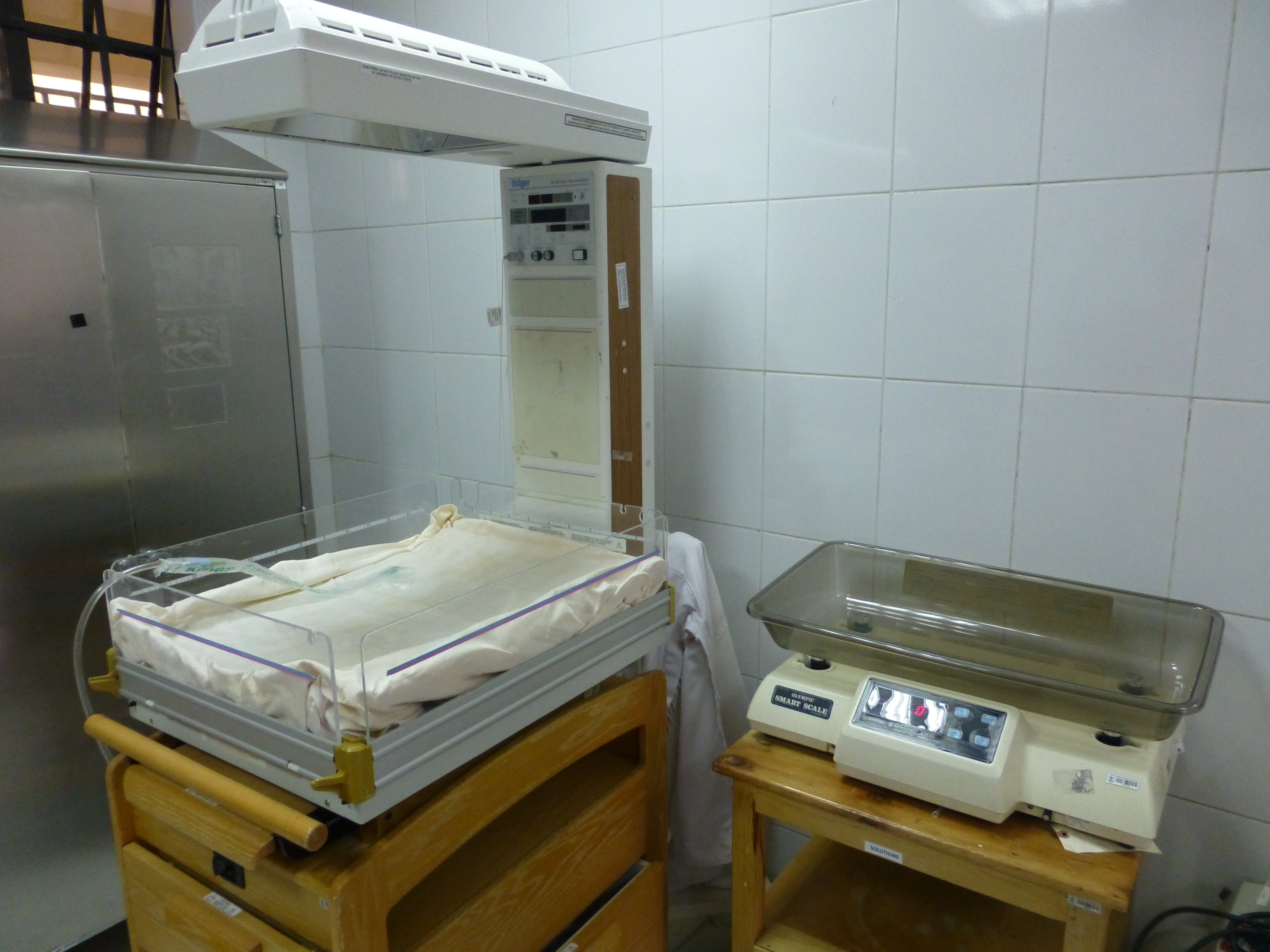
Empowering Pregnant Women in Lima, Peru
Many Peruvian women report experiencing physical or sexual violence in long-term romantic relationships, and studies have identified pregnancy as a time of particularly high risk for victimization. That violence carries risks for both mother and child during pregnancy and postpartum.
The Ford Program is adapting an intervention program now being piloted in South Bend, Ind., and Memphis, Tenn., for use in the capital of Lima. The Pregnant Moms’ Empowerment Program addresses how intimate partner violence affects mental health and pregnancy in five group therapy sessions.
Ford is collaborating with local agencies in Lima to make the program culturally and contextually relevant for women there, and will evaluate its success through a mixed-method study that includes qualitative interviews and a randomized control trial to measure quantitative physical and mental changes in participants’ health.
Partners: Pontifical Catholic University of Peru, Holy Cross Instituto de Pastoral de la Familia (INFAM), Building Resilience Against Violence Exposure (BRAVE) Lab, Universidad Católica Sedes Sapientiae
Researchers: Laura Miller-Graff, Kathryn Howell and Danice Brown Guzmán
Period: 2018-19
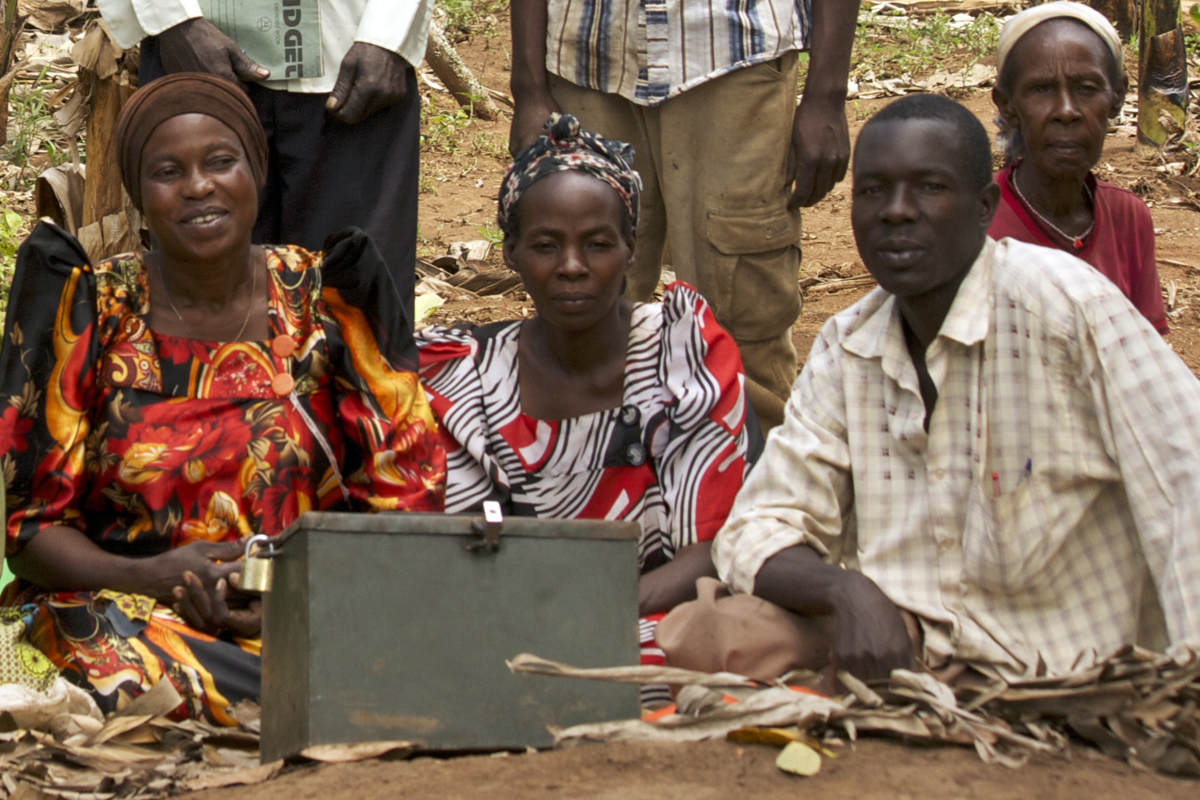
Community Lending and Outside Capital
In order to help bring affordable loans to the world’s poorest people, Catholic Relief Services (CRS) has created a network of Savings and Internal Lending Communities (SILCs) around the world. While these groups are effective at leveraging local knowledge to make loans with low default risk, demand for loans in SILCs greatly exceeds the supply of available funds. (more...)
Partner: Uganda Martyrs University
Researchers: Wyatt Brooks, Former Kellogg Faculty Fellow and Danice Brown Guzmán and Jackline Oluoch-Aridi
Period: 2018-19
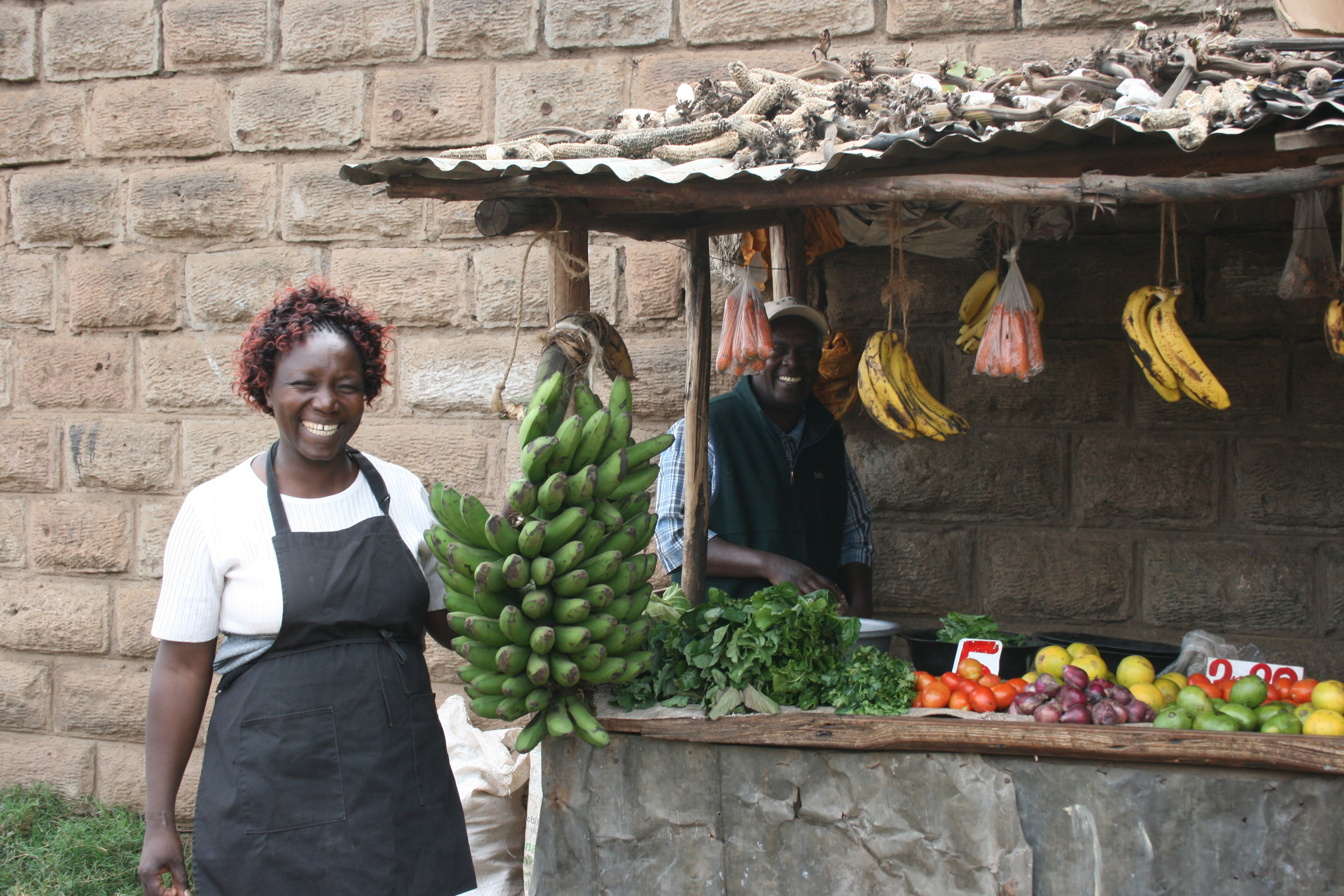
Mentorship as a Hand Out of Poverty: Evidence from Four Countries
Urban areas of the developing world are crowded with female-owned microenterprises struggling to make a profit. Yet even in the most challenging environments, a minority of businesses prosper. Can these entrepreneurs, which have learned to thrive in arduous circumstances, transfer what they have learned to a woman running a similar small business in the same environment? (more...)
Partners: Holy Cross Parish (Dandora, Nairobi, Kenya), Holy Cross Institute for the Family (INFAM), and Mentors International
Researchers: Wyatt Brooks, Terence Johnson and Bruce Wydick
Period: 2018-2019
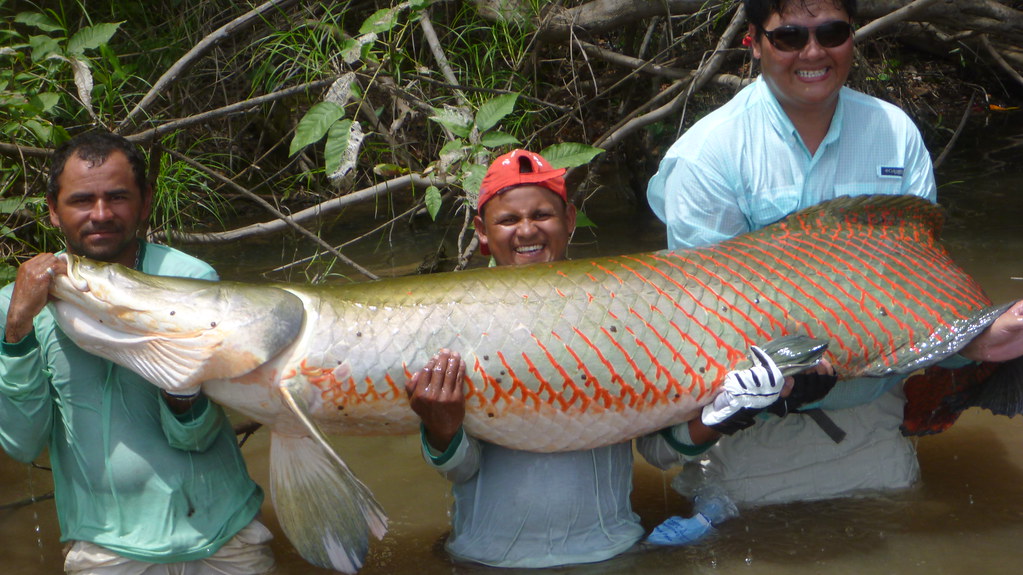
Employing Business and Markets to Serve Communities Emerging from Conflict
Leading scholars have shown how economic growth diminishes the threat of war, while poverty and hopelessness create the underlying conditions for conflict. This project explores the role increasing jobs through businesses and markets plays in the prevention, reduction, or recovery from conflict in its many forms. (more...)
Researchers: Kellogg Faculty Fellows Viva Bartkus, Joseph Kaboski and Sara Sievers
Period: 2018-19
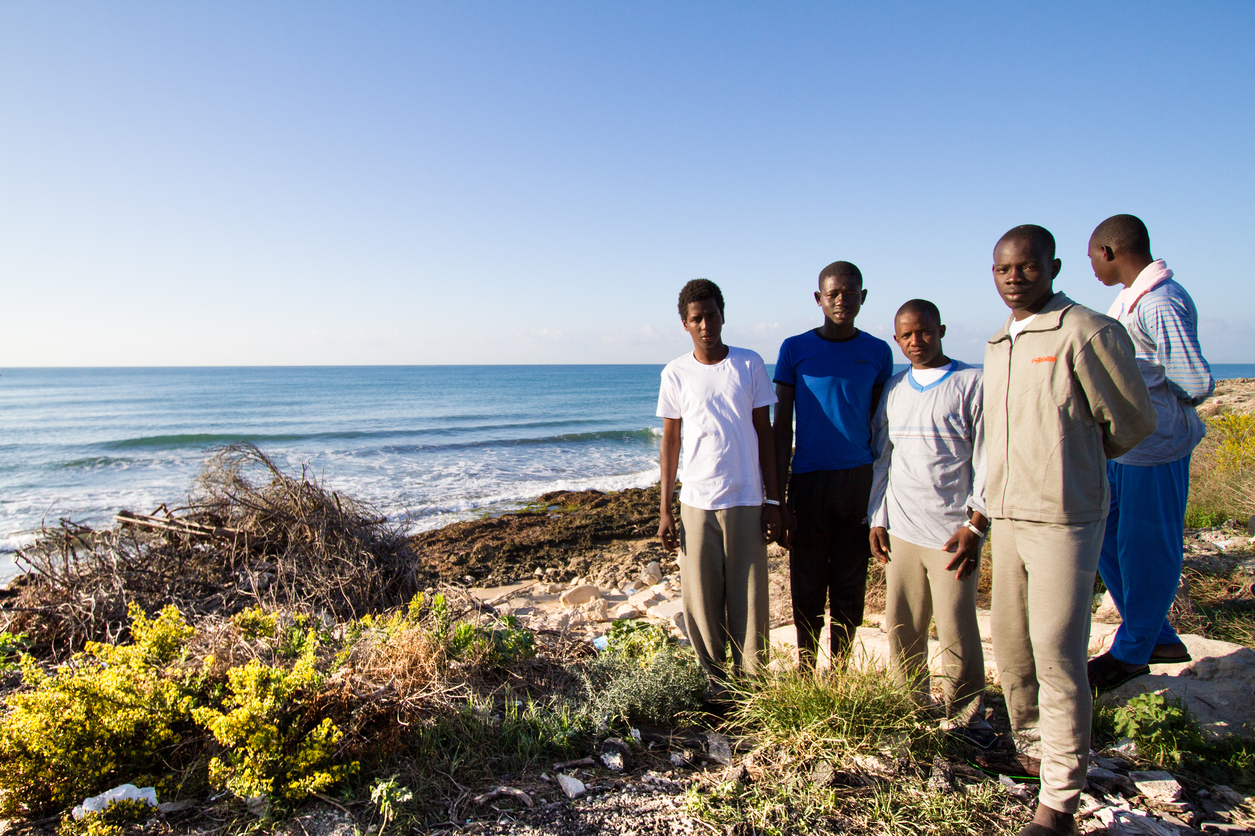
Remitting Belief to the Global South: An Interdisciplinary Study of Migration through Fieldwork and Big Data
Nearly a quarter of a billion people worldwide are international migrants. The Ford Program is studying how this unprecedented movement of peoples has influenced norms in the source countries of Sri Lanka and Mali, particularly in the context of human development in the areas of religion, society and culture. (more...)
Researchers: Kellogg Faculty Fellows Jaimie Bleck and Nilesh Fernando
Period: 2018-19
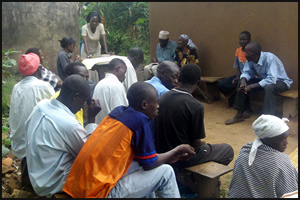
SEP Project in Uganda
Small-scale rural entrepreneurs in Uganda have had little access to formal microfinance, but a program growing out of Ford Program supported savings and internal lending communities – or SILC groups – in Nnindye is trying to change that by investing in an innovative effort to meet community needs through the power of supportive relationships, as well as funding. (more...)
Researchers: Danice Brown Guzmán, Monitoring and Evaluation Specialist, Ford Program and Jackline Oluoch-Aridi, Regional Research Programs Manager for East Africa
Period: 2018–19

Religion, Church, and the Integration of Migrants in Europe
Europeans vary greatly with respect to their attitudes toward the million-plus migrants who have entered Europe or have sought to enter Europe in recent years. In collaboration with researchers at partner institutions in Europe, this project seeks to determine whether, how, religious identity, beliefs, and practices affect the attitudes that European citizens across three countries (Italy, Germany, and Austria) have toward migrants and the appropriateness or possibility of their integration into European societies.(more...)
Partners: University of Trento, University of Milano-Bicocca, Catholic University of Eichstätt-Ingolstadt, University of Innsbruck, and Institute for Advanced Studies in Social Ethics in Salzburg
Researchers: Rev. Robert Dowd, csc, Rev. Dan Groody, csc, Ilaria Schnyder von Wartensee, and Clemens Sedmak
Additional Researchers: Giancarlo Blangiardo and Giorgio Vittadini, University of Milano-Bicocca, Giuseppe Folloni, University of Trento
Period: 2017–18
Project update
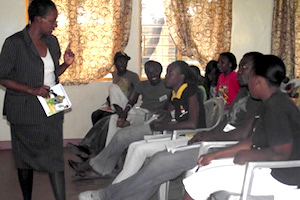
Kenyan Youth Scenarios Workshops
In 2010 and 2011, several hundred Kenyan youth leaders and activists took part in a series of weeklong workshops designed to help them envision how young people could shape the country 20 years in the future.
Participants in the Kenyan Youth Scenarios (KEYS) workshops discussed challenges related to democracy, including elections, resource distribution, and citizen participation. The public interest scenario workshops were held across the country and followed by a final national workshop in Nairobi, where they developed more detailed narratives about what the country might look like in 2031.
Partners: Katindi Sivi-Njonjo, lead consultant, Long View Consult, Nairobi; Nancy Muigei, government and development expert, DFID, Nairobi; and Tessa Finlev, research director, Peace and Development Lab, Institute for the Future, Palo Alto.
Researcher: Ann Mische
Period: 2017-18
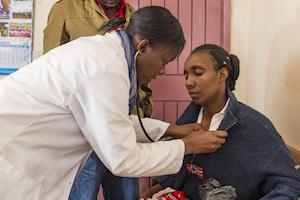
Measuring the Value of Insurance and Maternal Care: A Randomized Controlled Trial in Dandora, Kenya
Residents of Dandora, a sprawling section of Nairobi dominated by a massive garbage dump, contend with high unemployment, food insecurity, violence, poor health, and environmental issues. The Ford Program, in conjunction with local partners and Notre Dame researchers, is working to understand the best way to deliver quality healthcare and health insurance to mothers and children.
Partners: Holy Cross Parish and Visitation Maternity Ward at Brother Andre Medical Center, Dandora; Catholic University of Eastern Africa (CUEA); Strathmore University; Eck Institute for Global Health, University of Notre Dame
Researchers: Terence Johnson and Jackline Oluoch-Aridi
Period: 2016-18

Education and Dignity—Uganda
Families have flocked to private schools in Uganda but they vary greatly in the professionalization of their staff and the education they provide. In this pilot project, the Ford Program is evaluating a Ugandan educational institute’s ambitious initiative to increase the quality of education in a group of Catholic secondary schools by promoting consciousness of human dignity school wide.
From 2015 to 2017, the Luigi Giussani Institute of Higher Education (LGIHE) partnered with teachers and school leaders in seven rural Catholic schools in Uganda to provide professional development training. Constrained by a demanding national syllabus, a scarcity of material resources, and a need to supplement their low salaries, educators were challenged by LGIHE to reconsider their reason for teaching, allowing their pedagogy and practice to flow from a student-centered approach. School leaders were encouraged to reflect on their school's culture, working towards a holistic education committed to dignity and relationality.
Ford Program researchers collaborated in a mixed methods evaluation of the LGIHE intervention, engaging with students, parents, teachers, and school leaders in seven schools. The study affirms the improvement of trust between teachers and head teachers and reinforcement of the student-centered approach, and it suggests that future modules consider including parents and supporting teachers. Click on the report below for further insights about the effectiveness of the trainings and recommendations for evaluating the quality of education in the Ugandan context.
Partners: Congregation of Holy Cross, Luigi Giussani Institute for Higher Education (LGIHE), Association of Volunteers in International Service (AVSI), and Notre Dame's Institute for Educational Initiatives
Researchers: Ilaria Schnyder von Wartensee, Research Assistant Professor, and Danice Brown, Monitoring and Evaluation Specialist, Ford Program
Period: 2015–17
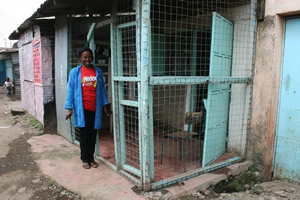
Why and How Mentorship Makes a Difference in Dandora
Although the three economists found that new entrepreneurs in Dandora who had mentors were more successful than new business owners who attended business–skills training workshops, the Ford Program was interested in learning why this
was the case. Was it just a matter of the business tips they received from mentors or was there something about the relationship itself that inspired women to persist despite the challenges they faced?
To understand why women with mentors were more successful than women without, Research Assistant Professor Ilaria Schnyder von Wartensee carried out a 2016–17 case study of mentor-mentee relationships in Dandora. The results suggest that the effects of having a
mentor were not solely due to the business tips mentors shared. Many of the mentees who were most successful in their businesses shared at length about the care and encouragement they received from mentors. This suggests that mentorship may be important not only because of the information and experiences shared, but because of the caring and supportive relationships that mentors had with mentees. The human connection the women shared was a crucial component of their success.
Partners: Holy Cross Parish, Dandora
Researchers: Kellogg Faculty Ilaria Schnyder von Wartensee
Period: 2016-2017
Dissemination: This research appears as the chapter “‘The Heart to Continue’: A Case Study on Mentorship in Peri-Urban Kenya” (pages 279-296) in The Practice of Human Development and Dignity, edited by Paolo Carozza and Clemens Sedmak (University of Notre Dame Press, 2020).
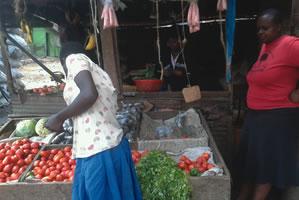
Empowering Entrepreneurs—Kenya
Residents of Dandora, a sprawling section of Nairobi dominated by a massive garbage dump, contend with high unemployment, food insecurity, violence, poor health, and environmental issues. The Ford Program, in conjunction with local partners and three Notre Dame economists, is working to understand how microfinance can best benefit young entrepreneurs, after residents identified young people’s job prospects as a key priority.
Preliminary findings from a randomized controlled trial conducted by the economists shows that young entrepreneurs mentored by experienced local business owners generate more profit than new entrepreneurs who receive business skills training. The Ford Program facilitated the study by arranging focus groups, interviews, training, and a survey of over 3000 young female microbusiness owners.
Partners: Holy Cross Parish, Dandora, and Strathmore University
Researchers: Kellogg Faculty Fellows Wyatt Brooks, Kevin Donovan, and Terence Johnson
Period: 2014–16
Dissemination:
Project Working Paper
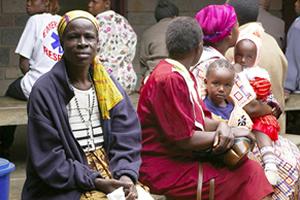
Text Messages for Community Health—Uganda
Conversations with residents during ongoing community engagement in the 12 rural villages of Nnindye revealed that they didn’t always take advantage of medical services provided by the community’s government clinic—and they weren’t that confident that staff and supplies would be present if they traveled there for treatment.
In response, the Ford Program and its partners established a text-messaging platform to allow clinic staff to inform residents when nurses and doctors were on duty and conducted a randomized-control trial to test the effectiveness of these messages at changing health-seeking behavior by Nnindye residents. Trial and clinic observational data show that the reported health status of the children of mothers who received text messages significantly improved.
Partners: Uganda Martyrs University, Verizon Foundation
Researchers: Notre Dame Initiative for Global Development, Luke Chicoine, Depaul University
Period: 2013–14 (The text-messaging system and Internet connection provided to the clinic continue to function.)

Meeting Point International Case Study
In 1992, Rose Busingye, a Ugandan nurse, began providing medicines and treatments to HIV/AIDS patients in Kireka, a slum of Kampala, Uganda. Many patients refused to eat or take the medicine or did not follow the treatment regimen. However, when she focused on listening to and learning with the women and helping them recognize their basic value as persons, the same women became spirited agents of their own development. Together, they started Meeting Point International (MPI), which serves over a thousand people and provides indirect services for more than 13,800.
To better understand the surprising transformation, Ilaria Schnyder von Wartensee together with Professor Giuseppe Folloni and Elizabeth Simpson Hlabse conducted a 2015–16 study of MPI, analyzing its distinctive approach, which she calls “identity-based human development.” Grounded in the experience of the community, this approach awakens local actors’ sense of their own value and empowers them. Her research explored how identity and awareness of dignity play a role in lasting development.
One important lesson this project highlights is that development is about more than applying techniques and skills to solve specific problems. Instead, caring relationships that restore a sense of value is at the core of development. These relationships help people to believe in their own abilities, develop their own skills, and contribute to the flourishing of the wider community. A paper detailing the research findings has been submitted to a peer-reviewed development journal and is currently under revision.
Partners: Meeting Point International
Researchers: Giuseppe Folloni, University of Trento and Elizabeth Simpson Hlabse, Kellogg Institute for International Studies
Period: 2014-2016
Dissemination: a paper detailing the research findings has been submitted to a peer-reviewed development journal and is currently under revision.
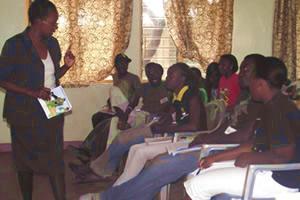
Education for Civic Engagement—Kenya
Kenya’s new constitution, approved in a voter referendum and promulgated in 2010, contained significant changes in the structure of government and the rights and responsibilities of citizens. This project sought to assist Caritas Kenya in its efforts to effectively inform and mobilize citizens to participate in the democratic process before the first national elections under the new Constitution.
Researchers assessed the effectiveness of civic education workshops conducted by Caritas in Dandora in the run up to the 2013 general election. The workshops were designed to educate potential voters about the new political system and encourage citizens to vote in the upcoming election. The results show that the workshops had no effect on voter turnout, with participants no more likely to vote than those who did not participate, but did have a mildly positive impact on certain indicators of political knowledge.
Partners: Holy Cross Parish, Dandora, and Caritas Kenya
Researcher: Faculty Fellow and Ford Program Director Rev. Robert Dowd, CSC
Period: 2012–13
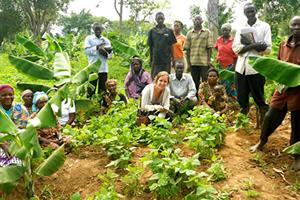
Nnindye: Local Empowerment for Rural Development—Uganda
In its initial project, a multiyear collaborative engagement with rural Nnindye Parish, the Ford Program partnered with community members and nearby Uganda Martyrs University to better understand the challenges faced by residents and to jointly design sustainable solutions that build upon local capacities and interests. Locally, the partnership has been known as UPFORD—the University Partnership For Outreach, Research, and Development.
Through an extended listening and learning process with Nnindye community members that included a baseline assessment, the project focused on empowering residents in five key sectors: agriculture; health; saving and lending; water and sanitation; and education. An elected parish development committee oversees activities in Nnindye’s 12 villages. Efforts brought to fruition include community demonstration gardens to increase banana production and savings and internal lending (SILC) groups.
The Ford Program conducted a qualitative evaluation of the project to ascertain its success at empowering members of the Nnindye community. Evidence suggests that the process has mobilized people in new ways around agricultural productivity and marketing and savings. There has been renewed interaction between members of the Nnindye community and local government on public service delivery.
Partners: Uganda Martyrs University and UPFORD
Researcher: Ilaria Schnyder von Wartensee, Research Assistant Professor, Ford Program
Period: 2007–15






